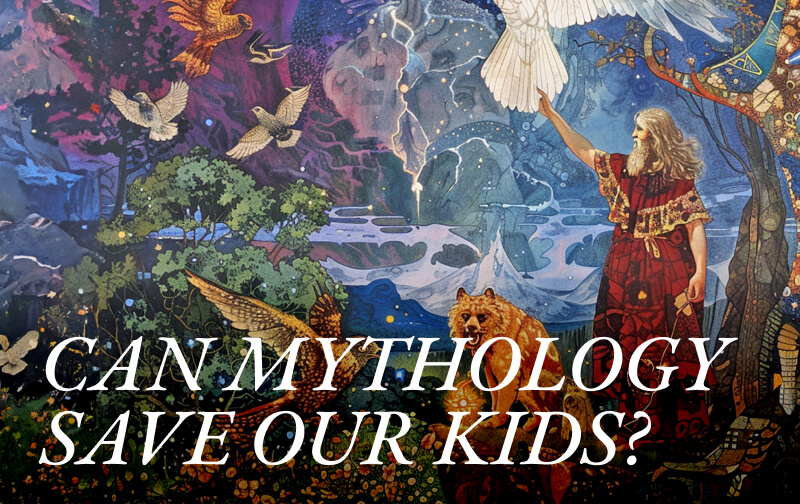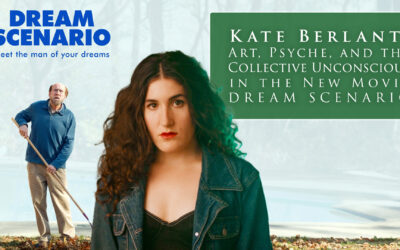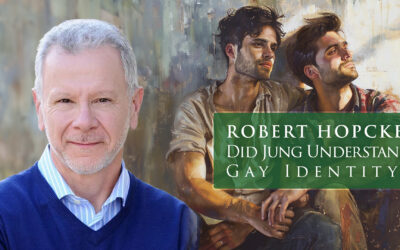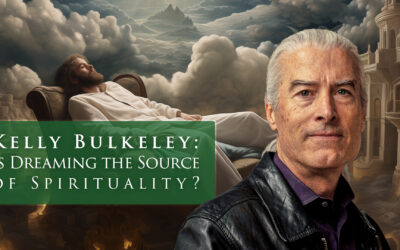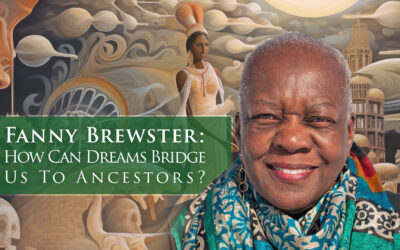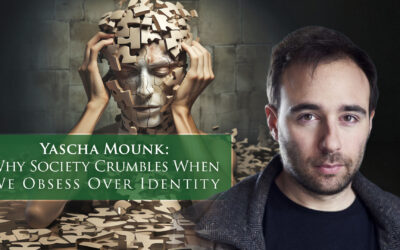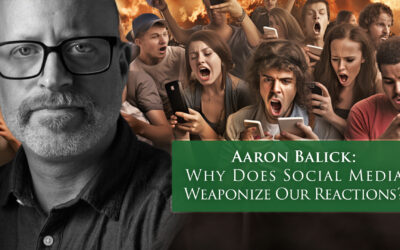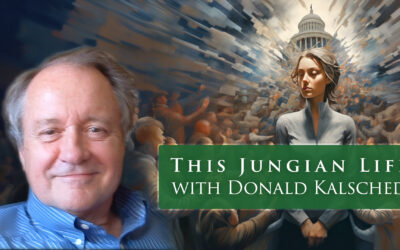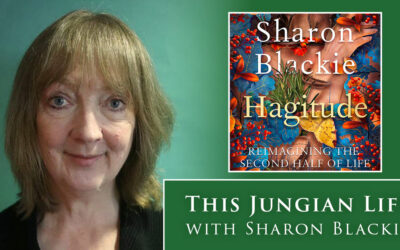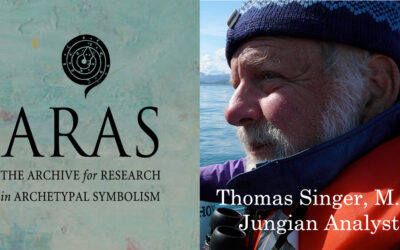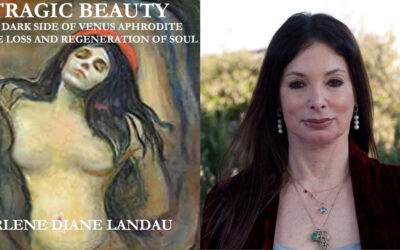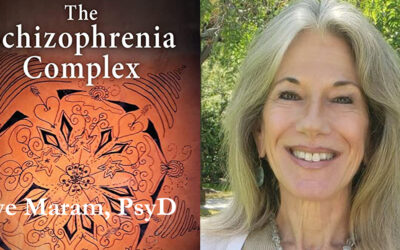Kwame Scruggs knows engaging in urban youth development requires innovative approaches that resonate deeply with the youth’s experiences. Myths hold a profound power to connect with young minds, fostering emotional healing and personal growth. Understanding how mythological storytelling can empower urban youth offers us a unique avenue to drive transformation and hope. Recognizing the effectiveness of Myth in youth development, we explore how this ancient practice can modernize our educational methods and cultural empowerment programs.
Kate Berlant: Art, Psych, and the Collective Unconscious in new movie DREAM SCENARIO
Apr 11, 2024
“Dream Scenario” is a thought-provoking new film that explores the uncanny power of the collective unconscious to shape culture and be shaped by it. In the movie, Nicholas Cage’s character Paul mysteriously starts appearing in others’ dreams across the globe. He grapples with the fear of being randomly celebrated by the collective and later demonized. Kate Berlant’s role in the film and insights into Jungian analysis and dream interpretation launch our conversation into the growing presence of Jung’s insights in art and film. We explore the effect of instant and unwarranted celebrity through social media and the power of archetypal roles to change the actor and activate the collective. Kate reveals her personal connection to analytical psychology and the path her inner work has taken her.
ROBERT HOPCKE: Did Jung understand gay identity?
Feb 29, 2024
Jungian psychology has a fresh take on integrating the shadow and the individuation process for LGBTQ+ folks. It encourages everyone to embrace their identity to achieve authenticity and wholeness. Reinterpreting Jung’s anima and animus concepts challenges the traditional binary notions of gender and sexuality, leading to a more fluid and inclusive understanding of these concepts. Dreams and fantasies can help people understand themselves better, showing them the archaic strata of desires, conflicts, and potentials hidden within their psyche. By engaging with the collective unconscious and its archetypes, LGBTQ+ individuals can better grasp themselves, fostering a sense of belonging and connection to the broader human experience. Jungian psychology recognizes and validates the complexity and diversity of human experiences, offering a framework that acknowledges and explores the many ways LGBTQ+ identities manifest and evolve.
Kelly Bulkeley: Is Dreaming the Source of Spirituality?
Jan 18, 2024
Dreams universally function as essential gateways to spiritual understanding, a truth echoed across cultures and eras. Modern sleep and dream research confront and expand upon the traditional views revealing a more complex nature of dreams. These dreams, whether as visitations, flights, or nightmares, reflect our existential questions and actively shape religious beliefs and practices. Merging empirical research with mystical interpretations, dreams are clearly more than mere reflections of waking life; they are direct conduits to deep spiritual insights.
Fanny Brewster: How can dreams bridge us to ancestors?
Dec 28, 2023
Jung’s concept of the collective unconscious emphasized the universal psychological substrate common to all humans. While he acknowledged the effects of the cultural unconscious, his work, at times, fell into the trap of perpetuating oversimplified and racially prejudiced stereotypes. Jung’s writings that refer to Africanist peoples, in particular, suffer from offensive assumptions.
Yascha Mounk: Why Society Crumbles When We Obsess Over Identity
Dec 14, 2023
In an era where identity politics reshapes global narratives, the urgent need to balance diversity with universal human values becomes clear. The melding of postmodernism, postcolonialism, and critical race theory raises a provocative question: Can embracing universal principles truly bridge our deepening societal divides? This challenge calls for a bold reimagining of our approach to social harmony and equality, urging a critical reassessment of how we navigate identity and inclusivity in a complex, interconnected world.
Aaron Balick – Why does social media weaponize our reactions?
Nov 9, 2023
Reactivity often usurps reflective response, with social media fueling instantaneous, reflexive reactions. This hampers thoughtful decision-making and obscures the other party’s perspective, trapping discourse within a reactive cycle. Emotional reactivity, a necessary short-term survival mechanism, can become a long-term maladaptive response, leading to perpetual defense rather than constructive dialogue. Such sustained reactivity is evident in the widespread use of social media, where the nuanced, truth-seeking aspects of communication are eclipsed by the platform’s inherent design that favors sensationalism and emotional contagion. This environment diminishes the capacity for mutual understanding and comprehensive evaluation of complex social issues, fostering a climate where binary thinking and polarization thrive.
Donald Kalsched – Can running our minds like a democracy save us?
Oct 5, 2023
Jung discovered our inner world is populated by various imaginal figures representing powerful psychological forces. If we treat our minds as democratic spaces, it can safeguard us from internal and external authoritarian influences.
HAGITUDE: Sharon Blackie on the power of aging
Aug 24, 2023
Elderhood can be a time to shed the roles assigned to us. Menopause can be welcomed as a rite of passage with the Hag silently waiting for us to see her. If we have learned how to recognize her, renewal and reclaiming is possible. The stories of those who have gone before us carry a strange beauty that can stir a memory in our soul and set us on the path.
ARCHETYPAL IMAGES: the soul’s language
May 11, 2023
If we envision archetypes as cosmic blueprints, then archetypal images are the tangible expressions that emerge from this transcendental plan. They are the houses built upon the foundation of archetypes, manifesting in a multitude of forms while remaining interconnected through their shared universal design. Separating archetypes and their imagery clarifies how one gives rise to the other yet remains distinct.
APHRODITE’S SHADOW: Drowning in Beauty
Feb 9, 2023
When the goddess Aphrodite claims us too fully, over time, our bodies become abandoned temples of physical perfection, sexual allure, and romantic passion. Her seductive archetypal power has captivated us for eons, but in today’s world, the enhancements of fashion, beauty, and physical appearance have intensified veneration of this goddess. However, her enchantments can have profound consequences, particularly when it comes to aging and the pressures of perfection.
THE SCHIZOPHRENIA COMPLEX: How Do We Love Those in Chaos?
Jan 26, 2023
The submergence in the unconscious that defines schizophrenia generates negative emotions in others. Yet when we look at Jung on psychosis, he shows us that we are different from those diagnosed with it only in degree. Jung’s Word Association Test proved that the unconscious influences our daily lives, and his work with psychotic patients led to his discovery of the collective unconscious, the mythopoetic substrate of humanity.
